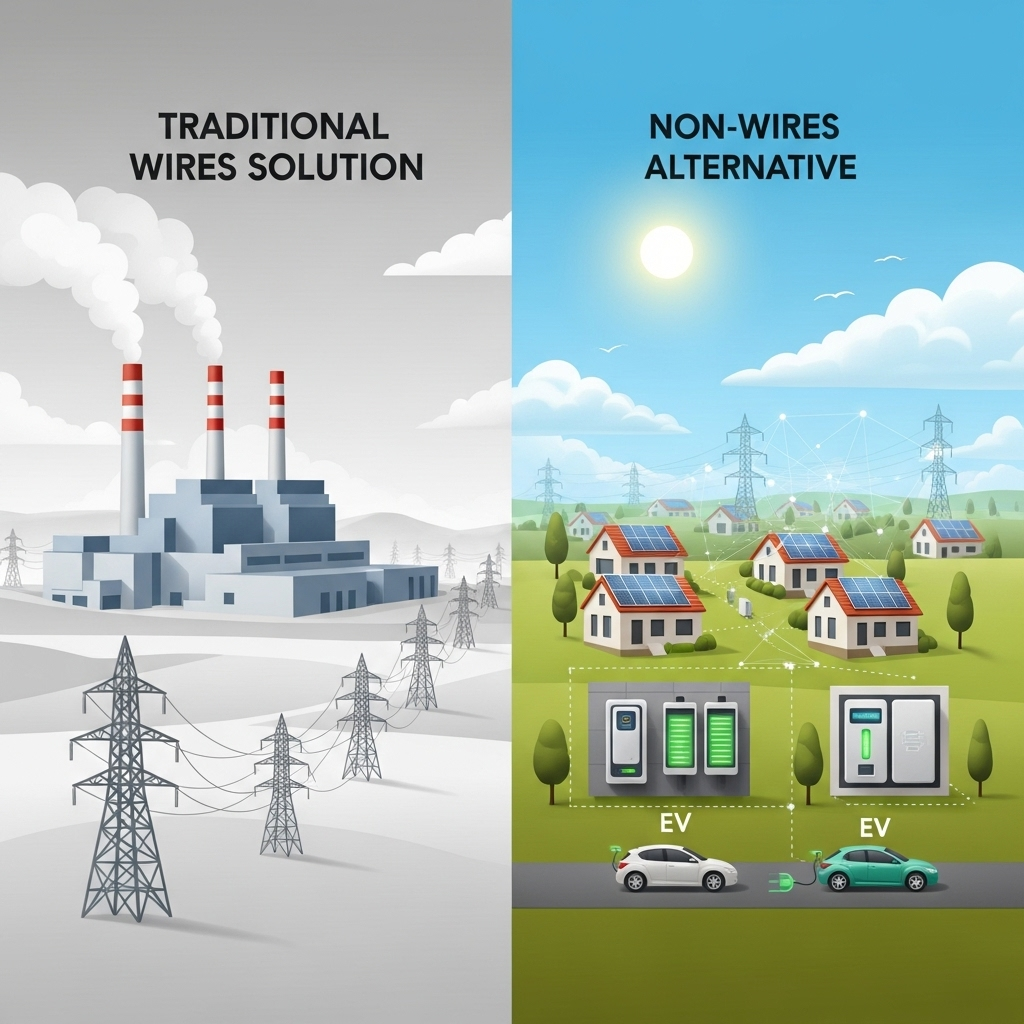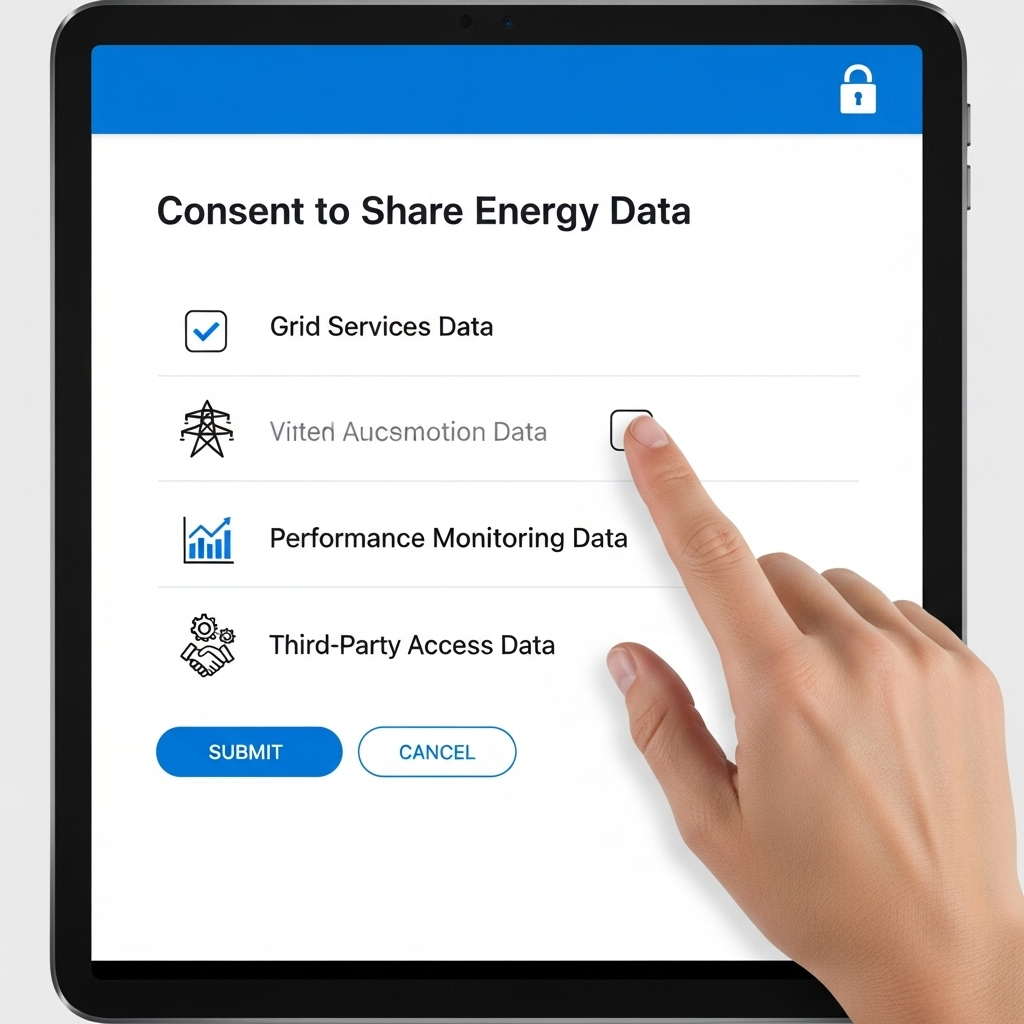Distributed Energy Resources (DERs), such as rooftop solar panels and home battery storage, are transforming our energy landscape. They also generate a massive amount of data. This raises a critical question with no simple answer: who actually owns and controls this information? The conversation around DER data ownership involves a delicate balance between consumer privacy, the operational needs of the grid, and the innovation that new energy services promise.
The Landscape of DER Data: What's Being Collected?
To understand the ownership dilemma, you first need to appreciate the types of data involved. DER systems are sophisticated pieces of technology that record and transmit a wide range of information, creating a detailed picture of energy generation and use.
Performance and Operational Data
At its core, DER data includes technical performance metrics. This is the information about how your system is functioning. It covers energy production from solar panels, the state of charge of your battery, energy consumption patterns in your home, and grid interaction details like voltage and frequency. This data is vital for system maintenance, troubleshooting, and ensuring the equipment operates efficiently.
Consumer and Behavioral Data
Beyond technical specs, energy usage data can reveal personal behavioral patterns. It can indicate when a home is occupied, when residents are on vacation, or what types of appliances are in use. While useful for optimizing energy efficiency, this information is highly sensitive. Protecting this personal data is a central challenge, as highlighted in the System Integration of Renewables report, which notes that issues of data ownership, privacy, and security are becoming increasingly important.
The Stakeholders: Who Wants Access?
Several groups have a vested interest in accessing DER data. The consumer, who purchased the equipment, has a primary claim. Utilities and Distribution System Operators (DSOs) require data for grid planning and stability. As DSOs evolve their roles, managing these data flows becomes critical. Additionally, third-party aggregators need data to bundle DERs into virtual power plants (VPPs) that provide services to the grid, a change that is reshaping electricity markets.
The Core of the Issue: Defining DER Data Ownership
Ownership is not a simple concept in the digital age. For DER data, it's best understood as a bundle of rights that includes access, use, and control. The key is establishing a framework where these rights are clearly defined and respected for all parties.
The Consumer's Right to Control
The foundational principle should be that the data generated by a consumer's property belongs to the consumer. Any access by third parties must be predicated on informed and explicit consent. This means consumers should have easy access to their own data and the power to decide who else can see it and for what purpose. Policies like those in Washington state, which mandate utilities to get permission from consumers for data collection and disclosure, set a strong precedent for consumer protection.
Legitimate Needs of Grid Operators
Utilities and grid operators have a responsibility to maintain a stable and reliable power supply. The influx of DERs makes this more complex. As the System Operation: Innovation Landscape Briefs publication points out, DSOs need to develop innovative systems to solve network constraints. Access to certain DER data is essential for forecasting, managing grid congestion, and ensuring power quality. The challenge lies in providing this necessary visibility without infringing on individual privacy.
Aggregators and the Market for Grid Services
Aggregators play a growing role by enabling smaller DERs to participate in energy markets. They create value for both the consumer and the grid. However, their business model depends on accessing and analyzing performance data from many systems. This access must be built on a foundation of trust, with clear agreements that specify what data is used and how the consumer benefits from sharing it.
Building a Framework for Trust: Consent and Policy
A robust policy framework is essential to manage DER data access effectively. This framework must prioritize privacy and security while still enabling the services that make the grid cleaner and more efficient. The creation of a forum for data exchange is a key challenge for a successful power system transformation, as noted in the IEA's China Power System Transformation analysis.
The 'Opt-In' vs. 'Opt-Out' Debate
A key policy question is whether consumers should actively 'opt-in' to share their data or be automatically included with a chance to 'opt-out'. While opt-out programs might lead to broader participation in demand response markets, they can raise significant privacy concerns. A balanced approach, like the voluntary code of conduct developed by the US Department of Energy, seeks to foster innovation while protecting consumers.
The Power of Granular Consent
Instead of a simple yes-or-no choice, a better model is granular consent. This allows consumers to authorize specific data points to be shared with specific parties for specific purposes. For example, a consumer might agree to share anonymized battery performance data with an aggregator but not their real-time household consumption data. This puts the user in firm control.
International Policy Models
Several countries in Europe, including Denmark, have established centralized data platforms or 'DataHubs'. These systems often empower consumers to see their own data and authorize third-party access directly. This model provides transparency and control, helping to build a trusted ecosystem for new energy services.
Practical Steps for Managing Data Access
Beyond policy, technology and best practices offer powerful tools for protecting DER data privacy while enabling market participation.
Data Minimization in Practice
The principle of data minimization is simple: collect and share only the data that is absolutely necessary for a given task. Instead of streaming raw, high-frequency data, an aggregator might only need aggregated performance metrics over a 15-minute interval. This approach significantly reduces privacy risks.
Sharing Performance Metrics, Not Personal Data
Focusing on key performance indicators (KPIs) is an effective way to achieve data minimization. For energy storage, metrics like State of Charge (SoC), Depth of Discharge (DoD), and Round-Trip Efficiency are crucial for grid services. As detailed in the ultimate reference for solar storage performance, understanding these metrics allows operators to assess a battery's capability without needing access to sensitive household consumption patterns. This protects privacy while delivering the necessary operational insights.
| Data Type | Description | Privacy Risk |
|---|---|---|
| Raw Consumption Data | Second-by-second energy usage from the home. | High - Can reveal personal habits and occupancy. |
| Aggregated Performance Data | Average power output or battery charge level over 15 minutes. | Low - Provides operational value without personal details. |
| System Status Alerts | Notifications for technical faults or disconnections. | Low - Purely operational and essential for reliability. |
Forging a Path Forward
The question of DER data ownership doesn't have a single owner. It's a shared responsibility. Consumers hold the primary rights, but grid operators and service providers have legitimate needs. The path forward requires clear policies that establish consumer consent as the unshakable foundation. By embracing principles like data minimization and leveraging secure, transparent platforms, we can unlock the immense potential of DERs to create a more resilient and efficient grid while ensuring that individual privacy is always protected.
Frequently Asked Questions
Who legally owns the data from my solar panels?
In most jurisdictions, the data generated by equipment you own on your property is considered yours. However, agreements with your installer, utility, or financing company may grant them rights to access or use this data. It is crucial to read these agreements carefully to understand your rights and obligations regarding DER data ownership.
Can a utility access my energy data without my permission?
Utilities typically have the right to access data from the meter for billing and grid management purposes. Access to more granular data from your specific DER assets, like a battery or inverter, generally requires your explicit consent. Regulations are evolving to strengthen these DER privacy consent requirements.
What is a DER aggregator and why do they need my data?
A DER aggregator is a company that combines the capacity of many individual DERs (like your home battery) to sell energy or grid services to the wholesale market. They need performance data to know how much capacity is available and to control the assets to deliver the service. Your participation is voluntary and should be based on a clear contract that outlines the data policy and your compensation.





Leave a comment
All comments are moderated before being published.
This site is protected by hCaptcha and the hCaptcha Privacy Policy and Terms of Service apply.